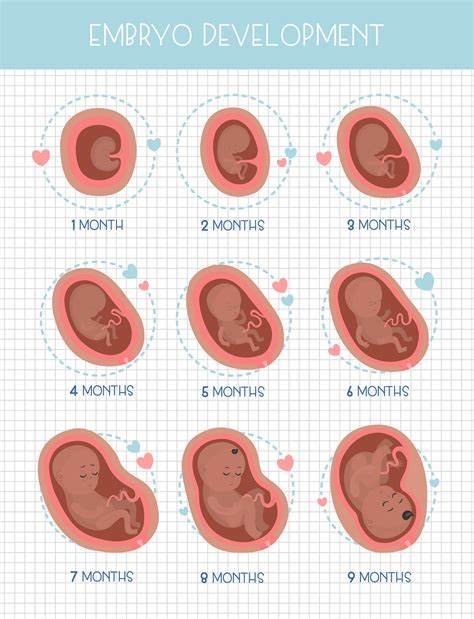
Navigating Your First Trimester: Tips and Tricks
The first trimester of pregnancy is an exciting and transformative time, but it can also come with its challenges. From the shock of a positive test to managing early symptoms like nausea and fatigue, it can feel overwhelming. However, with the right information and a few practical strategies, you can navigate this stage of pregnancy with confidence and ease. In this guide, we’ll explore essential tips and tricks to help you manage your first trimester, stay healthy, and prepare for the months ahead.

Understanding the First Trimester
The first trimester spans the first 12 weeks of pregnancy, beginning from the first day of your last period. During this time, your baby undergoes rapid development, and you may experience significant physical and emotional changes.
What’s Happening with Your Baby:
- Weeks 1-4: The fertilized egg implants in the uterus, and the placenta begins to form.
- Weeks 5-8: Major organs and systems (like the heart, lungs, and brain) begin to develop. The baby is now considered an embryo.
- Weeks 9-12: By the end of the first trimester, the baby has all major organs formed, and you’ll begin to see a clear outline of their tiny face and limbs. The baby is now called a fetus.
What’s Happening with You:
- You might start to notice symptoms like fatigue, breast tenderness, nausea, and mood swings.
- Many women also experience heightened emotions and can feel a mix of excitement and anxiety.
Common First Trimester Symptoms and How to Cope
The first trimester can bring a variety of physical and emotional symptoms. While each pregnancy is unique, here are some common experiences and tips for managing them.
2.1 Morning Sickness
Morning sickness is one of the most common first-trimester symptoms, affecting around 70-80% of pregnant women. Despite its name, it can occur at any time of day.
Tips for Coping:
- Eat Small, Frequent Meals: Eating smaller meals throughout the day rather than large ones can help keep nausea at bay.
- Stay Hydrated: Drink plenty of fluids, especially water and electrolyte-rich drinks. Sipping on ginger tea or sucking on ice chips can also help settle your stomach.
- Avoid Triggers: Certain smells, foods, or even stress can make nausea worse. Try to avoid known triggers.
- Try Acupressure: Wearing acupressure wristbands, often used for motion sickness, can be helpful in reducing nausea.
2.2 Fatigue
Fatigue is another common symptom, as your body works overtime to nurture the developing baby. Hormonal changes, particularly the increase in progesterone, can make you feel extra tired.
Tips for Coping:
- Listen to Your Body: Prioritize rest, and don’t feel guilty about taking naps or going to bed early.
- Maintain a Balanced Diet: Eating iron-rich foods and staying hydrated can help prevent energy dips.
- Gentle Exercise: If you’re feeling up to it, light exercises like walking or yoga can actually boost energy levels.
2.3 Breast Tenderness
Many women experience sore or swollen breasts during the first trimester as the body prepares for breastfeeding.
Tips for Coping:
- Wear a Supportive Bra: Choose a comfortable, well-fitting bra to provide support and relieve discomfort.
- Avoid Tight Clothing: Loose-fitting clothes can reduce irritation and tenderness.
- Apply a Warm Compress: A warm compress can help alleviate soreness.
2.4 Mood Swings
Hormonal fluctuations during the first trimester can cause emotional ups and downs. You may feel happy one moment and tearful the next.
Tips for Coping:
- Talk About Your Feelings: Keep open communication with your partner, family, and friends to express your emotions.
- Practice Relaxation Techniques: Techniques like deep breathing, meditation, or prenatal yoga can help calm your mind.
- Get Enough Sleep: Lack of rest can exacerbate mood swings, so prioritize quality sleep.
2.5 Food Cravings and Aversions
It’s common to crave certain foods, while others may suddenly become unappealing. This can be influenced by your body’s changing needs, especially for nutrients.
Tips for Coping:
- Listen to Your Body: If you crave certain healthy foods (like fruits or veggies), go with it. If you’re craving less nutritious options, try to find healthier alternatives that satisfy your need.
- Don’t Force It: If a particular food makes you feel sick, don’t force yourself to eat it. Your body is adjusting, and these aversions are usually temporary.
Prenatal Care: What to Expect in the First Trimester
Your first prenatal visit is an important step in ensuring a healthy pregnancy. It’s typically scheduled around 8-10 weeks, but if you experience complications or concerns, it may happen sooner.
What to Expect:
- Medical History and Exam: Your doctor will take a detailed medical history, perform a physical exam, and may run some initial tests (like blood work, urine tests, or an ultrasound).
- Confirming Pregnancy: While at-home pregnancy tests are usually accurate, your healthcare provider will confirm the pregnancy with a blood test or ultrasound.
- Screening Tests: In some cases, you may be screened for genetic conditions (like Down syndrome) or offered early ultrasound scans to check on the baby’s development.
- Discussing Supplements: You’ll likely be prescribed prenatal vitamins containing folic acid, iron, and calcium to support your health and the baby’s development.
Key Tests in the First Trimester:
- Ultrasound: An early ultrasound may be done to check the baby’s heartbeat and verify the pregnancy’s viability.
- Blood Work: Blood tests can screen for anemia, blood type, and potential infections or conditions like gestational diabetes.
Understanding Healthy Choices in All Aspects of Life
Just as we prioritize informed decisions about nutrition, supplements, and rest during pregnancy, it’s important to apply that same care to recreational choices. Sites like gambling360 online casinos highlight the importance of secure and trustworthy platforms in the digital space. Whether exploring entertainment or prenatal products, informed choices support a healthy, balanced lifestyle.
Conclusion
The first trimester of pregnancy is a time of rapid changes, both physically and emotionally. It can be overwhelming, but it’s also an exciting time as you prepare for the arrival of your baby. With the right knowledge, self-care, and support, you can navigate this stage of pregnancy with confidence and set the foundation for a healthy, happy pregnancy ahead. Remember, every pregnancy is different, so listen to your body, communicate with your healthcare provider, and take one day at a time. You’ve got this!







